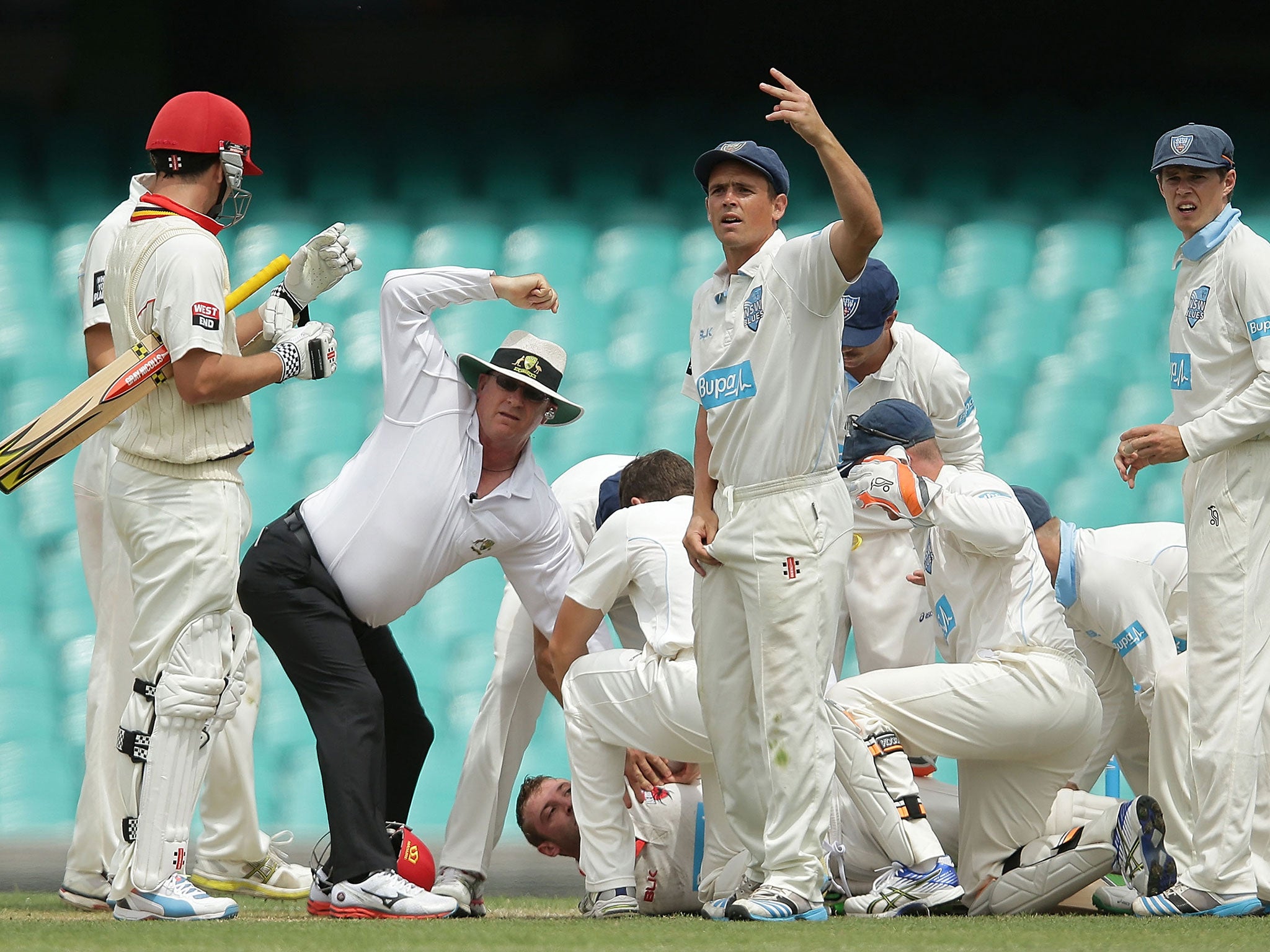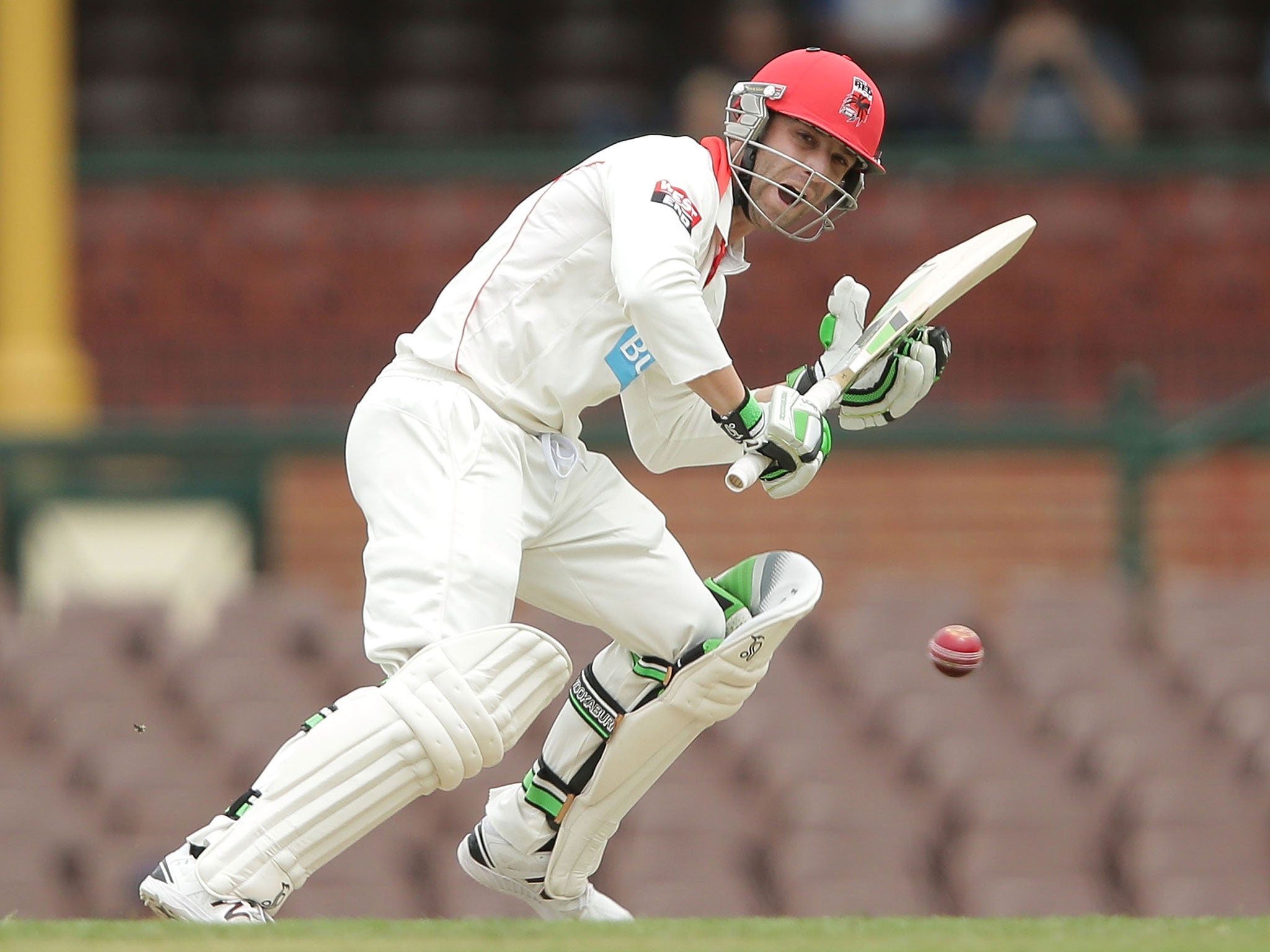Phil Hughes head injury: Angus Porter warns batsmen 'will never be safe' despite new helmets to be introduced next season
Professional Cricketers' Association chief executive Porter believes great progress has been made in protecting batsmen but 'No design will eliminate risk completely'

Your support helps us to tell the story
From reproductive rights to climate change to Big Tech, The Independent is on the ground when the story is developing. Whether it's investigating the financials of Elon Musk's pro-Trump PAC or producing our latest documentary, 'The A Word', which shines a light on the American women fighting for reproductive rights, we know how important it is to parse out the facts from the messaging.
At such a critical moment in US history, we need reporters on the ground. Your donation allows us to keep sending journalists to speak to both sides of the story.
The Independent is trusted by Americans across the entire political spectrum. And unlike many other quality news outlets, we choose not to lock Americans out of our reporting and analysis with paywalls. We believe quality journalism should be available to everyone, paid for by those who can afford it.
Your support makes all the difference.Safety standards for helmets in county cricket are set to be higher than ever next season but players' chief Angus Porter has warned the risk to batsmen will never be completely eliminated.
The cricket world has been united in shock by the sickening injuries sustained by South Australia's Phil Hughes in a Sheffield Shield match against New South Wales, but safety has never slipped down the agenda at organisations such as the Professional Cricketers' Association.
Porter, the organisation's chief executive, has been closely involved with an initiative to raise the bar in terms of protective equipment and expects to see helmets meeting the new standard as soon as next summer.
"We have been working hard for several years with the England and Wales Cricket Board, and the International Cricket Council, to improve protection for batsmen," Porter told Press Association Sport.
"As a result there is a new British safety standard which is in the process of being implemented that will hopefully offer a greater measure of protection.
"The standard is now live and the manufacturers are working with testing houses on designs that will pass.
"The first batch of helmets are coming through now which would pass the test and we're hopeful we will see them used in professional cricket next season."

But Porter also cautioned against complacency, warning that the sheer physical dynamics involved in elite cricket carried inherent danger.
"It's difficult to know exactly what difference the standard might have made in this precise circumstance because there will always be an element of risk in cricket," he said.
"The balls are hard and they travel fast. No design will eliminate risk completely.
"While we haven't had life-threatening injuries for some time in this country we have had a number of serious injuries. Stuart Broad and Craig Kieswetter were notable examples this year and it is a matter to take very, very seriously indeed."
Porter was also keen to stress that 90mph bowling at the elite level was not the only circumstance where a cricketer might find themselves in trouble.
"I don't think we can forget about recreational cricket," he added.
"A number of helmet designs allow users to adjust the gap between peak and grille and kids can make that gap too wide in a bid to see the ball better.
"We must understand the issue of safety and that you can still be hurt at slower speeds."
PA
Join our commenting forum
Join thought-provoking conversations, follow other Independent readers and see their replies
Comments